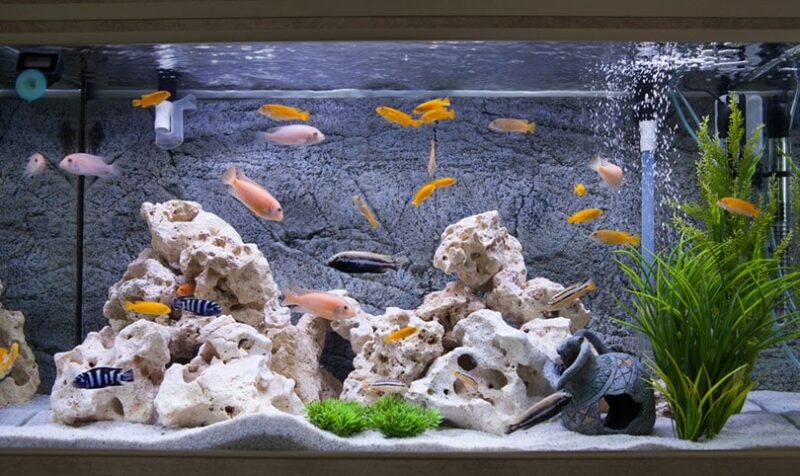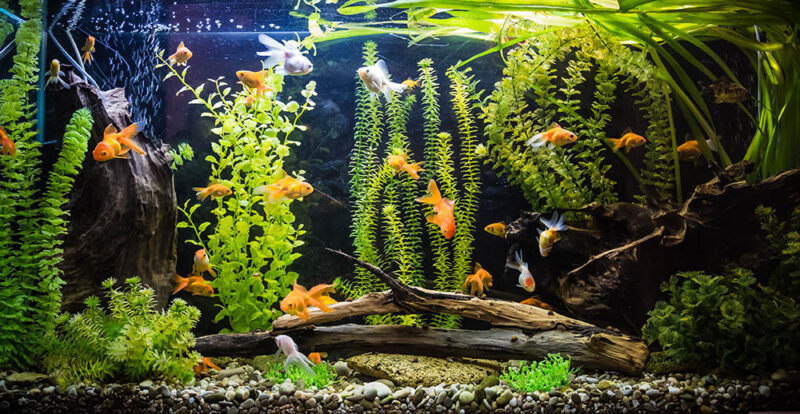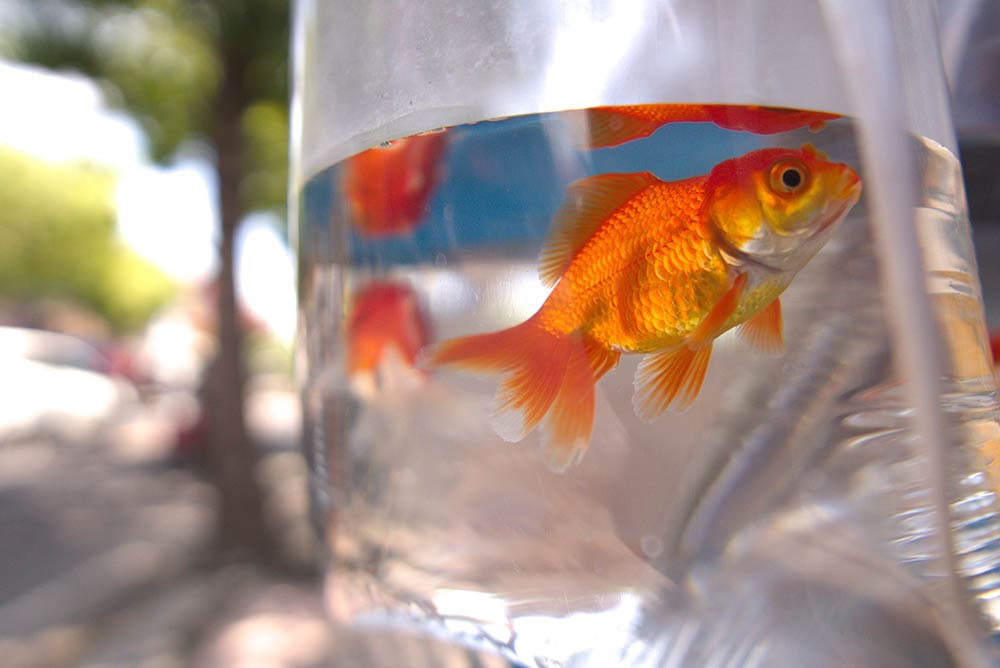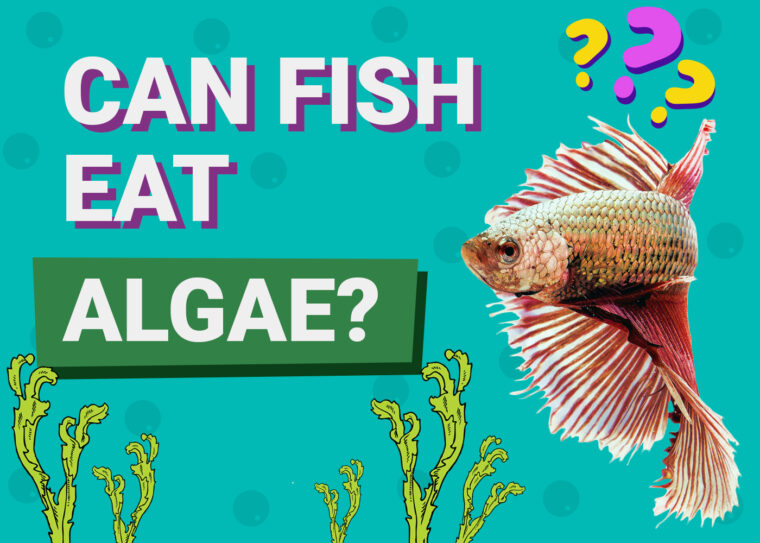
Many species of fish primarily feed on algae and it forms part of their main diet. Many aquariums will experience an algae outbreak and you may have noticed some species of fish nibbling on the algae, or you could be wondering whether there is a specific fish that you can get to control the number of algae growing in an aquarium.
Algae grow in nearly all aquariums; however, some aquariums can have a larger outbreak of algae than others depending on the conditions. Many omnivorous or herbivorous fish will gladly eat algae in an aquarium.
Is Algae Safe for Fish To Eat?
Algae is safe for fish and makes a good source of food for many species of fish. Algae is beneficial in established aquariums because it works as a form of filtration since algae grow and feeds off ammonia, phosphates, and waste products produced from fish.
Many aquarists will try to limit the number of algae growing in the aquarium because it can look unsightly and grow on the aquarium’s glass and different ornaments in the aquarium.
The first thing many aquarists will do is to look for an alga-eating fish to keep the algae under control. However, some aquarists may already have an algae-eating fish in the aquarium that do not seem to keep the algae growth under control.
Although algae are safe for fish, not all fish will eat all the different types of algae that grows, algae-eating fish prefer to eat the varieties of green algae.
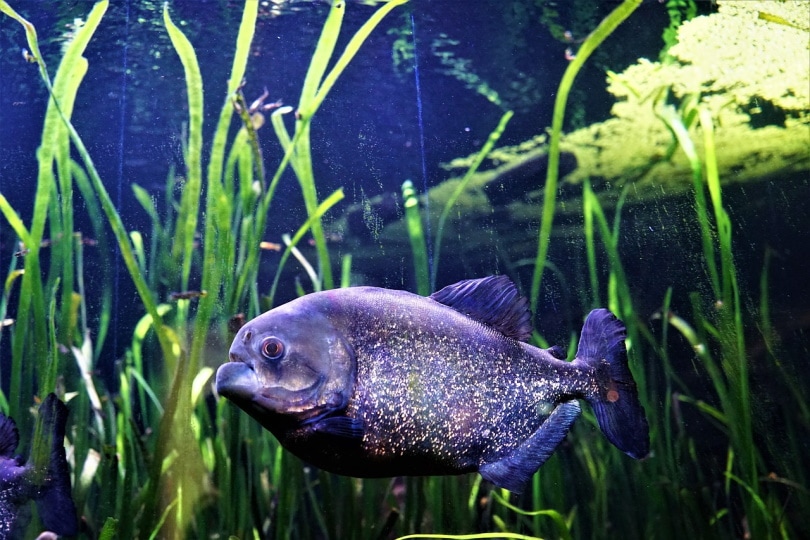
Can Algae Kill Fish?
Algae is not harmful to fish to eat, however, large amounts of algae growing in an aquarium can cause harm. Severe algae outbreaks in aquariums can lower the oxygen levels in the aquarium and rotting algae can cause the ammonia levels to spike to levels that are deadly to fish and other live inhabitants.
If you have used an algaecide in your aquarium to remove algae, the large amounts of rotting algae can be fouling the water which can cause the fish, live plants, and invertebrates in the aquarium to die. Algae blooms produce a toxin that is lethal to fish known as algal toxins. These toxins are produced by the algae during its life cycle and are released from the algae cells and into the surrounding water causing harmful algae blooms.
These blooms are not very common in home aquariums, however, they can occur in ponds and aquariums with an imbalance in the water parameters. If your aquarium has a harmful algae bloom, it may seem like the fish are dying from eating the algae, when the algae are instead killing off the fish by polluting the water.
Different Types Of Algae That Fish Eat
Fish will generally eat green carpeting or hair algae, as they cannot eat planktonic algae that give the aquarium water a green coloration. These are also the safer types of algae that can be controlled in an aquarium or pond with fish. Aquarists may also introduce algae-eating fish into the aquarium to keep the algae growth under control.

You may find that algae-eating fish should only be used in an aquarium to keep the algae growth under control as they are not a great solution for aquariums that already have a bad algae outbreak.
Most fish will not eat varieties such as staghorn, blue-green, blanket weed, brown, or green planktonic algae because they find it unappealing.
What Do Fish Eat?
A fish’s diet can be divided into three categories—omnivorous, herbivorous, or carnivorous diet. Fish that eat different plant and animal matter to ensure their diet is balanced are known as omnivores, whereas fish that only eat animal proteins are known as carnivores, and fish that eat plant materials are herbivores.
Omnivorous fish such as goldfish will eat live foods such as bloodworms, but they will also eat plants such as algae or even herbivore fish foods like algae wafers to keep their diet varied. Algae form part of many herbivorous and omnivorous fish diets, but they do not belong to carnivorous fish who usually prey on smaller fish, invertebrates, and small live foods.
Most commercial fish foods will contain algae in the ingredients list because it is a beneficial source of food.

What Types Of Fish Eat Algae?
There are many different herbivorous and omnivorous fish that will eat algae. Algae is also a food source in many different fish diets that they would eat in the wild, which makes it safe for them to eat in captivity. Some species of fish will eat more algae than others and are labeled as “algae-eaters”, whereas some fish will eat algae when they are hungry and have no other food source to rely on. These algae-eating fish can help keep the number of algae under control if you only have small spots in the aquarium that grow algae.
Final Thoughts
Algae is not harmful to fish eat, however, algae blooms in aquariums can cause problems with the water quality. Many species of fish will nibble at algae, and it forms part of their diet in both the wild and captivity.
Fish can only eat a small portion of algae at a time, so if you want to keep your aquarium free from algae outbreaks, you will need to consider other factors such as lighting and water conditions that can influence algae growth.
Featured Image by: PublicDomainPictures, Pixabay






